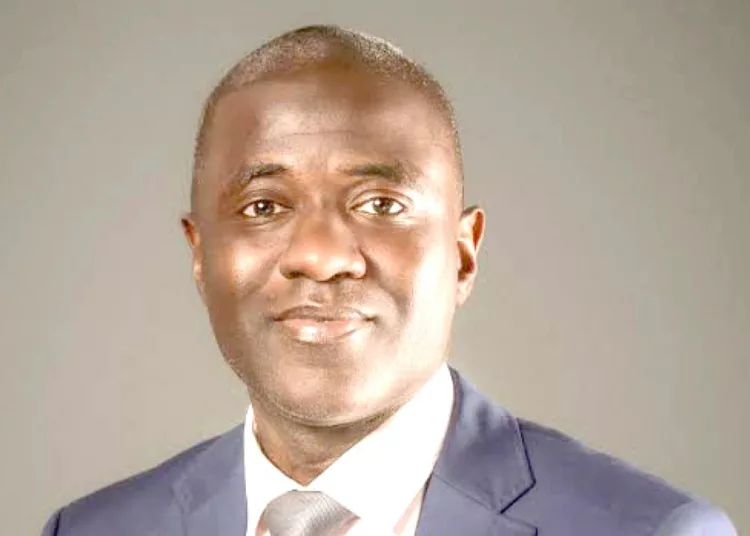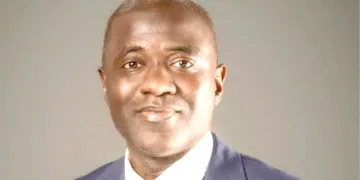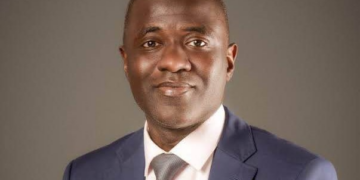Connectivity is the backbone of modern economies, as it drives innovation, enhances productivity, and opens up new avenues for economic growth.
According to the executive vice chairman/chief executive officer, Nigerian Communications Commission (NCC), Dr. Aminu Maida, broadband connectivity is a critical enabler of digitization and technical efficiency, as it provides the essential infrastructure that supports digital tools and services across various sectors.
“The World Bank has highlighted the profound impact of broadband on economic development, particularly in developing nations. According to their report (WB 2016), a 10 percent increase in fixed broadband penetration can boost GDP growth by up to 1.38 percent in developing countries thereby speeding up the economy.
“Broadband connectivity is a catalyst for economic growth, driving the digital economy, creating job opportunities, and fostering entrepreneurship. It enhances public service delivery through e-governance systems, with online portals for business registrations and tax filings improving efficiency and reducing bureaucratic delays. In infrastructure development and urban planning, Geographic Information Systems (GIS) play a pivotal role, and many states have established GIS centers to optimize land use and management processes.
Moreover, broadband connectivity bridges the digital divide, promoting social equity by making digital tools accessible to all citizens. Additionally, broadband enhances security and governance by supporting surveillance systems, biometric identification, and data analytics for crime prevention. Digital platforms also facilitate citizen engagement, promoting transparency and participatory decision-making. In essence, broadband connectivity is not just about faster internet speeds; it‘s about transforming economies, enhancing public services, promoting social equity, and ensuring better governance. It lays the foundation for a more connected, efficient, and inclusive society, where technology empowers every citizen and drives sustainable development,” Maida further explained.
In the same vein, the president, ATCON, Tony Izuagbe Emoekpere, said despite the promising prospects of broadband and connectivity, there are numerous challenges that continue to impede the deployment of telecom network infrastructure. “Insecurity remains a major concern, particularly the activities of non-state actors engaging in criminal activities such as kidnapping, banditry, and terrorism. These threats are most prevalent in the northern and southeastern regions of the country, posing significant risks to both local and expatriate personnel working on telecom projects.
“Additionally, the exorbitant fees and bureaucratic hurdles associated with obtaining right of way permits from some state governments continue to be a major barrier to infrastructure development. The lack of proper road infrastructure in rural areas further complicates efforts to extend telecom services to underserved and remote communities,” Emoekpere lamented.
Challenges
Despite these huge benefits, the director, Regulatory, IHS, Saidu Abdullahi, affirmed that the journey towards a connected Nigeria is fraught with challenges such as high CAPEX requirements, multiple taxation, and regulatory hurdles.
The telecom companies responsible for expanding internet access face several problems, which include fiber cuts, multiple taxes, excessive right-of-way fees, insecurity, high energy costs, and inflation. For instance, the industry experienced over 35,000 fiber cuts in 2022 and over 24,000 fiber cuts so far in 2023. Similarly, over N14 billion has been spent on repairing damaged fiber. In the same vein, there have been over 18,000 denial of access cases recorded in 2022 and over 6,000 cases so far in 2023,”Abdullahi revealed.
Path Forward
Maida, at a one day strategic Stakeholder’s Meeting with the 36 States Commissioners Including FCT, therefore called on states to prioritise broadband infrastructure, implement investor-friendly policies, and eliminate regulatory bottlenecks.
“While we all have our parts to play, we cannot achieve this vision alone. We need a collaborative effort from all stakeholders – state governments and industry players. To the state governments, we offer partnership and technical expertise through various programs such as the USPF, National Broadband Alliance for Nigeria, Project 774 LG connectivity, and so much more. To the industry, let’s leverage innovation and investment in solutions while embracing efficiency to reach the underserved.
Each state can, in its unique way, propel development for its state and the nation at large. It, however, starts with effective collaboration,” Maida, who was represented by the assistant director, Digital Economy Department, NCC, Engr. Yahaya Hamisu Abubakar, added.
Emoekpere assured that operators are committed to working collaboratively with all stakeholders to overcome these challenges, adding that, “We believe that through concerted efforts and strategic partnerships, we can create a more favorable environment for the expansion of telecom infrastructure and the realisation of our collective goals.”
“By leveraging technical efficiencies, reducing right-of-way fees, and fostering collaboration between state governments and private sector stakeholders, we can unlock the full potential of Nigeria’s states and accelerate our journey towards a digitally inclusive future”, Abdullahi affirmed.
He advised that states government to conduct a comprehensive review of their regulatory frameworks to accommodate advancements in telecommunications technology and ease the stress of doing business in respective states. „This includes streamlining the process for obtaining permits and approvals to reduce delays in infrastructure deployment and providing incentives to make the state attractive to foreign investors,“ he added.
It is imperative for the Nigerian government to increase its spending on telecom and attract more foreign investment in telecommunications to boost productivity and economic growth, Abdullahi stated while advocating for effective communication and collaboration between state governments, federal agencies, and private sector stakeholders, as effort to address regulatory challenges and fostering an environment conducive to growth and innovation.
While multiple taxation remains a major challenge for infrastructure development in Nigeria, as it disincentivizes investments and hampers the growth of telecommunications infrastructure, Abdullahi said addressing this issue requires a concerted effort from all levels of government to streamline taxes and provide incentives for infrastructure investments. This will attract more investments and ensure the sustainability of existing infrastructure, he added.
On RoW, Abdullahi said excessive right-of-way fees pose a significant barrier to the expansion of telecommunications networks.
Recall that in November 2022, the Federal Government of Nigeria reduced rights-of-way fees for telecom infrastructure in its Federal Capital Territory by 90 per cent, facilitating the coverage of 75 per cent of the national territory with optical fibre by 2027, as proposed by the National Broadband Plan.
In Edo and Kwara States, IHS has reached agreements on the administration of right-of-way fees, which have significantly reduced operational costs and facilitated faster deployment of infrastructure. While this is a commendable step towards achieving massive broadband penetration in Nigeria, we urge other states to lower these fees and offer incentives to telecom operators to encourage infrastructure development,“ he added.
Finally, encouraging Public Private Partnerships (PPPs) can help bridge the funding gap for large-scale telecommunications projects, ensuring that both urban and rural areas benefit from improved connectivity, Abdullahi stated, adding that, „By addressing these key areas, state governments can drive connectivity, promote socioeconomic development, and position Nigeria as a leader in the digital economy.“
We’ve got the edge. Get real-time reports, breaking scoops, and exclusive angles delivered straight to your phone. Don’t settle for stale news. Join LEADERSHIP NEWS on WhatsApp for 24/7 updates →
Join Our WhatsApp Channel







